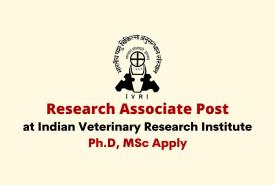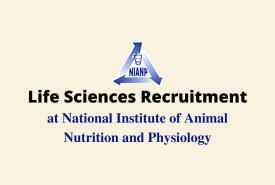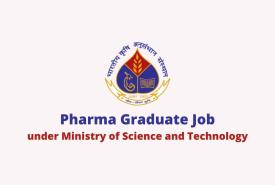Senior Research Fellowship under ICAR NASF funded project at NIAB
NIAB, an autonomous institute under the aegis of the Department of Biotechnology, Ministry of Science & Technology, Government of India, is aimed to harness novel and emerging biotechnologies and create knowledge in the cutting edge areas for improving animal health and productivity. The Institute’s research focus is on animal genetics and genomics, transgenesis, stem cell & its applications, reproductive biotechnology, infectious diseases, nanotechnology, bioinformatics and Nutrigenomics.


















